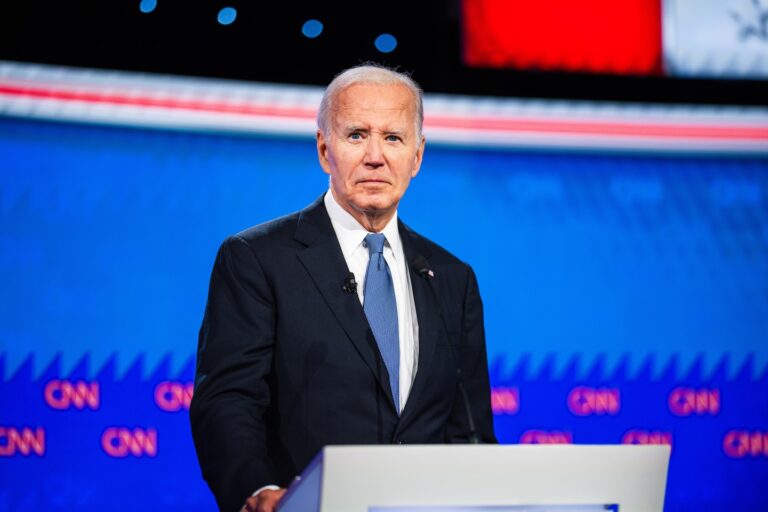If they do, it would be procedurally very easy for delegates to the Democratic National Convention, which begins August 19 in Chicago, to vote for another candidate.
Biden’s victories in this year’s primaries and caucuses have secured him the overwhelming support of the delegates who will attend this summer’s convention. He has so far pledged his support – 3,894 of the 3,937 delegates available – according to an Associated Press tally. If Biden were to withdraw, those delegates would be free to vote for another candidate.
But the political maneuvering around a new candidate could lead the party down a confusing and uncharted path and expose clear ideological differences that were muted by Biden’s candidacy.
Democrats will face what’s known as an “open convention” — a time-honored scenario in which a presidential nominee is chosen on the spot, historically after some behind-the-scenes negotiation and maneuvering. With the advent of the modern primary system, such a convention will be held for the first time in decades. Vice President Harris will likely be the presumptive front-runner for the nomination, but delegates are under no obligation to select her.
Experts say Biden’s withdrawal could cause chaos.
“Biden represents a compromise that holds together a broad and potentially divided coalition of the Democratic Party,” said Hans Noel, a political science professor at Georgetown University. “Any attempt to find a replacement will bring those divisions to the forefront. It may be hard to find another candidate that everyone can agree on.”
Still, the Democratic Party has a slate of promising candidates who may consider running for president in 2028, including Michigan Gov. Gretchen Whitmer, Pennsylvania Gov. Josh Shapiro, California Gov. Gavin Newsom, Maryland Gov. Wes Moore, Transportation Secretary Pete Buttigieg, North Carolina Gov. Roy Cooper and Georgia Sen. Raphael G. Warnock.
The DNC rule book makes no mention of such an open convention scenario, offering only this guidance to delegates: “All delegates to a national convention supporting a candidate for president shall act in accordance with their conscience and reflect the sentiments of the people who elected them.”
Derek Muller, a law professor at the University of Notre Dame, said the change in candidates is legally possible because no official candidates have yet been selected and no ballots printed, but the political maneuvering to choose a new candidate would likely be a “free-for-all.”
That’s how political conventions have historically worked: Delegates selected by political parties attend the convention without party affiliation to choose a presidential candidate. But in March 1968, President Lyndon B. Johnson decided not to run for reelection, and the Democratic convention in August of that year was thrown into chaos when delegates could not decide on a candidate.
The party later changed its rules to give voters the power to choose their candidate through a primary election, and delegates to the convention were required to support the candidate who won each state’s primary.
If Democrats head into an open convention, a big challenge will be deciding on a candidate before states close their polls. With the possibility of six or more candidates, it’s unlikely that a candidate will win a majority of the delegate votes on the first ballot. That could lead to a drawn-out convention and days of voting before a result is decided.
Elaine Kamark, a political primary expert and former Democratic delegate, said in an interview that a scenario in which Biden refuses to step down but a challenger emerges to persuade delegates to reject him is possible but unlikely.
“Someone would have to say this is awful, this is wrong, he’s too old,” she said. “And frankly, nobody would probably do that. It would be extremely destructive. You would have to confront him head on.”
Democrats are working under a shortened deadline: The Democratic National Convention agreed to hold a virtual roll call to nominate Biden before the convention to thwart a law that would require a candidate to be selected by Aug. 7 (90 days before the election) to be eligible to appear on Ohio’s state ballot. But Democrats could reverse course after the Ohio State Legislature passed a law relaxing the deadline to ensure Biden appears on the ballot.

